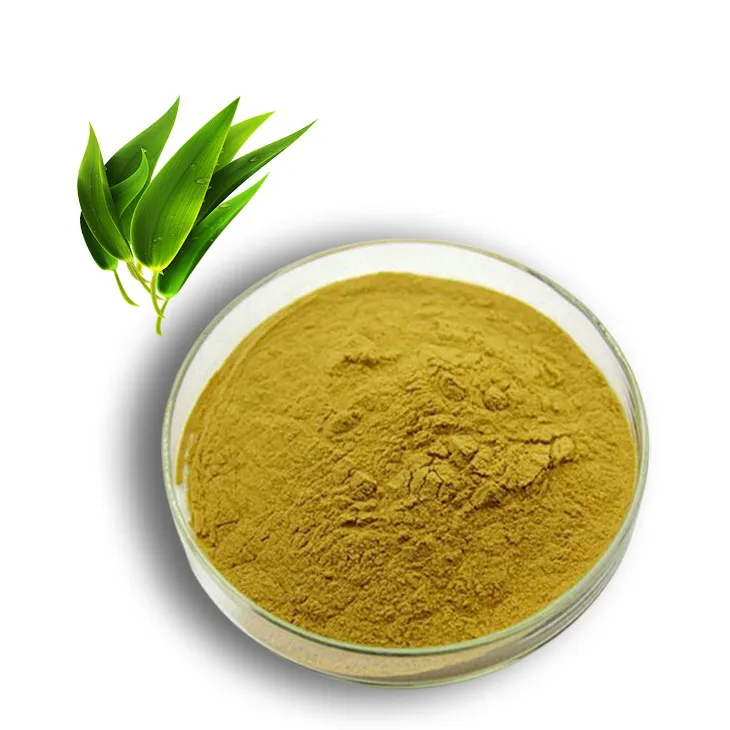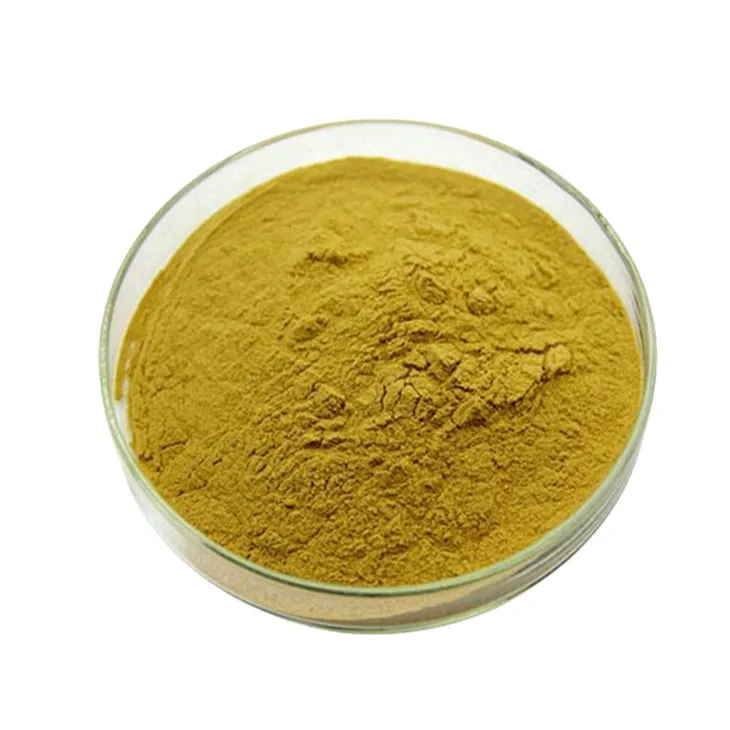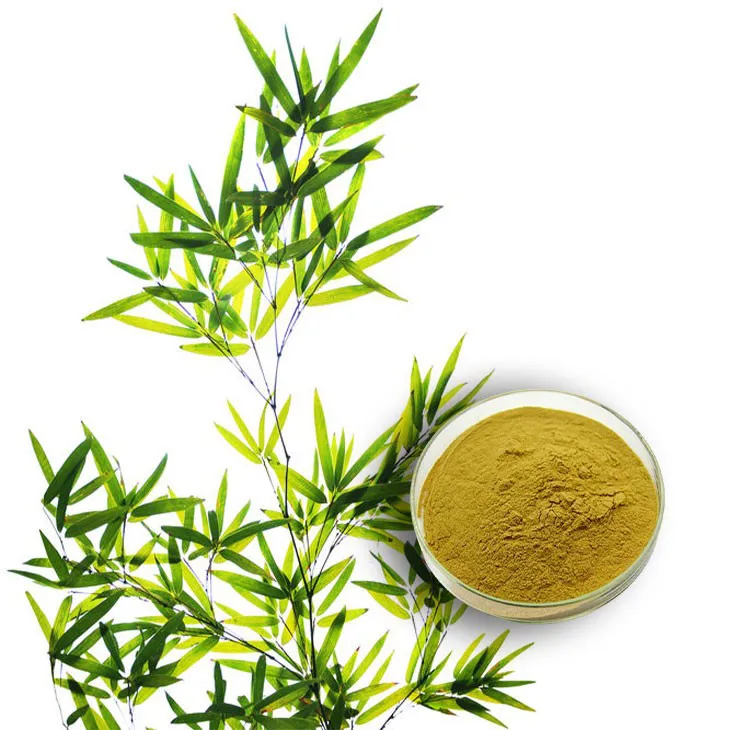- 0086-571-85302990
- sales@greenskybio.com
Bamboo Leaf Extract in Trinidad and Tobago.
2024-12-21

1. Introduction to Trinidad and Tobago's Flora
Trinidad and Tobago, a vibrant twin - island nation in the Caribbean, is renowned for its rich and diverse flora. This unique geographical location has given rise to a wide variety of plant species. Among these plants, bamboo stands out as a particularly interesting and valuable part of the local ecosystem. Bamboo is not only a significant part of the natural landscape but also holds great potential in various fields due to the properties of its leaf extracts.

2. Bioactive Compounds in Bamboo Leaf extracts
The Bamboo Leaf extracts from Trinidad and Tobago are rich in a variety of bioactive compounds, which are the key to their potential applications.
2.1 Flavonoids
Flavonoids are one of the important components in Bamboo Leaf extracts. These compounds are widely known for their antioxidant properties. Antioxidants play a crucial role in the human body as they can help to combat free radicals. Free radicals are unstable molecules that can cause damage to cells, DNA, and proteins in the body. By neutralizing these free radicals, flavonoids can potentially reduce the risk of various diseases associated with oxidative stress, such as heart disease, cancer, and neurodegenerative disorders.
2.2 Phenolic Acids
Another group of bioactive compounds present in bamboo leaf extracts are phenolic acids. These acids are believed to have anti - inflammatory effects. Inflammation is a natural response of the body's immune system to injury or infection. However, chronic inflammation can be harmful and is associated with many health conditions, including arthritis, diabetes, and certain autoimmune diseases. The anti - inflammatory properties of phenolic acids in bamboo leaf extracts may offer potential benefits in the treatment or prevention of these conditions.
2.3 Alkaloids
The alkaloids found in bamboo leaf extracts also hold significance. These compounds might play a role in promoting certain physiological functions in the body. Although the exact mechanisms are still being studied, alkaloids have shown potential in areas such as modulating the nervous system, affecting enzyme activity, and interacting with cellular receptors. Their presence in bamboo leaf extracts adds to the overall complexity and potential value of these extracts.

3. Potential Applications in Scientific Research
The study of bamboo leaf extracts from Trinidad and Tobago has great potential in the field of scientific research.
One of the main areas of interest is the development of new drugs. The bioactive compounds in the extracts, with their various beneficial properties, can serve as starting points for drug discovery. For example, the antioxidant and anti - inflammatory properties of flavonoids and phenolic acids may be exploited to develop drugs for treating diseases related to oxidative stress and chronic inflammation. Scientists can conduct in - vitro and in - vivo studies to further understand how these compounds interact with biological systems and identify potential drug targets.
Another aspect is the development of natural health products. With the increasing demand for natural alternatives to synthetic drugs, bamboo leaf extracts can be formulated into various health supplements. These could include dietary supplements for general health promotion, or products targeted at specific health conditions based on the properties of the bioactive compounds. For instance, a supplement containing bamboo leaf extract with its antioxidant - rich flavonoids could be marketed for its potential to support cardiovascular health.

4. Applications in the Cosmetics Industry
The unique properties of bamboo leaf extracts also make them highly suitable for use in the cosmetics industry.
The antioxidant and anti - inflammatory properties are of particular interest. In skin - care products, antioxidants can help to protect the skin from damage caused by environmental factors such as UV radiation and pollution. By neutralizing free radicals on the skin surface, they can prevent premature aging, including the formation of wrinkles and fine lines. The anti - inflammatory properties can soothe irritated skin, making bamboo leaf extracts ideal for use in products for sensitive skin types.
There are several ways in which bamboo leaf extracts can be incorporated into cosmetics. They can be used in creams, lotions, serums, and masks. For example, a face cream containing bamboo leaf extract could offer anti - aging benefits while also providing hydration and skin - soothing effects. In addition, bamboo leaf extracts can be combined with other natural ingredients to create more complex and effective skin - care formulations.

5. Economic Opportunities
The exploration and commercialization of bamboo leaf extracts in Trinidad and Tobago present a range of economic opportunities.
Job creation is one of the significant benefits. The process of collecting bamboo leaves, extracting the bioactive compounds, and manufacturing products based on these extracts requires a workforce. This could include jobs in the agricultural sector for bamboo cultivation, in the extraction and processing facilities, and in the marketing and sales of the final products. For example, local farmers could be employed to grow bamboo sustainably, providing a source of income for rural communities.
Another economic opportunity lies in increased export revenues. Bamboo leaf extracts and products containing these extracts could be exported to international markets. There is a growing global demand for natural and sustainable products, and Trinidad and Tobago could position itself as a supplier of high - quality bamboo - based products. This could bring in foreign exchange earnings, contribute to the balance of trade, and boost the overall economic growth of the nation.
6. Challenges and Future Outlook
Despite the great potential, there are also some challenges associated with the development of bamboo leaf extracts in Trinidad and Tobago.
One of the main challenges is the need for further scientific research. Although the initial studies have shown promising results, more in - depth research is required to fully understand the properties and potential applications of the bioactive compounds in bamboo leaf extracts. This includes studies on their safety, efficacy, and optimal extraction methods. There is also a need to standardize the extraction processes to ensure consistent quality of the extracts.
Another challenge is related to regulatory requirements. To bring bamboo leaf - based products to the market, whether as drugs, health supplements, or cosmetics, they need to comply with local and international regulatory standards. This requires investment in regulatory compliance, including product testing, documentation, and quality control.
Looking to the future, however, the outlook for bamboo leaf extracts in Trinidad and Tobago is positive. With continued research and development, the potential applications in various fields are likely to expand. As the global market for natural products continues to grow, Trinidad and Tobago has the opportunity to establish itself as a key player in the bamboo leaf extract industry, reaping the economic and health - related benefits.
FAQ:
What are the main bioactive compounds in bamboo leaf extracts from Trinidad and Tobago?
The main bioactive compounds in bamboo leaf extracts from Trinidad and Tobago are flavonoids, phenolic acids, and alkaloids. Flavonoids are known for their antioxidant properties. Phenolic acids may have anti - inflammatory effects, and alkaloids might play a role in promoting certain physiological functions.
How can the bamboo leaf extracts from Trinidad and Tobago be used in cosmetics?
The antioxidant and anti - inflammatory properties of the bamboo leaf extracts from Trinidad and Tobago can be utilized in cosmetics. They can be used to create skin - care products with anti - aging and soothing effects.
What are the potential health benefits of bamboo leaf extracts from Trinidad and Tobago?
The flavonoids in the extracts, with antioxidant properties, can combat free radicals in the body. The phenolic acids may have anti - inflammatory effects, which could be beneficial for various health conditions. And the alkaloids might promote certain physiological functions.
How can the exploration of bamboo leaf extracts contribute to the economy of Trinidad and Tobago?
The exploration and commercialization of bamboo leaf extracts in Trinidad and Tobago can open up new opportunities for the local economy. This includes job creation and increased export revenues.
What scientific research opportunities are there regarding bamboo leaf extracts from Trinidad and Tobago?
From a scientific research perspective, the study of these extracts could lead to the development of new drugs or natural health products.
Related literature
- Bamboo Leaf Extract: Chemical Composition and Biological Activities"
- "Bioactive Compounds from Tropical Plants: Focus on Trinidad and Tobago Flora"
- "The Potential of Caribbean Plant Extracts in Cosmetics: A Case of Bamboo Leaves"
- ▶ Hesperidin
- ▶ citrus bioflavonoids
- ▶ plant extract
- ▶ lycopene
- ▶ Diosmin
- ▶ Grape seed extract
- ▶ Sea buckthorn Juice Powder
- ▶ Beetroot powder
- ▶ Hops Extract
- ▶ Artichoke Extract
- ▶ Reishi mushroom extract
- ▶ Astaxanthin
- ▶ Green Tea Extract
- ▶ Curcumin Extract
- ▶ Horse Chestnut Extract
- ▶ Other Problems
- ▶ Boswellia Serrata Extract
- ▶ Resveratrol Extract
- ▶ Marigold Extract
- ▶ Grape Leaf Extract
- ▶ blog3
- ▶ blog4
- ▶ blog5
-
Cassia Seed Extract
2024-12-21
-
Avocado Extract Powder
2024-12-21
-
Coconut Water Powder
2024-12-21
-
Purple Sweet Potato Extract
2024-12-21
-
Cactus Extract
2024-12-21
-
Rose Hip Extract
2024-12-21
-
Agaricus Blazei Extract
2024-12-21
-
Yohimbine Bark Extract
2024-12-21
-
Maca Extract
2024-12-21
-
Almond Extract Powder
2024-12-21





















